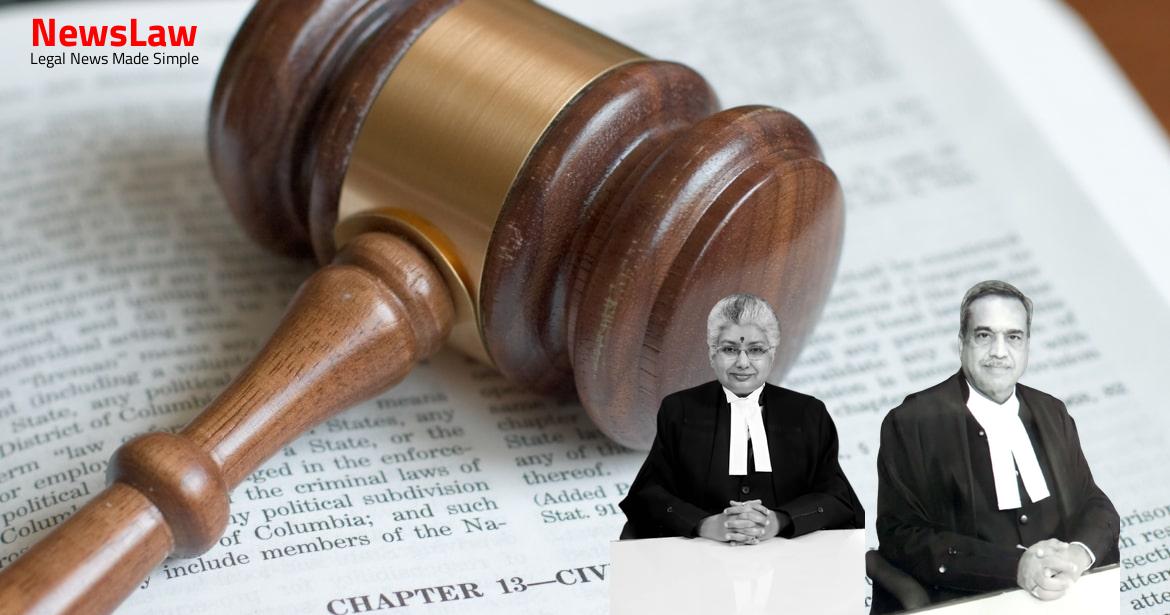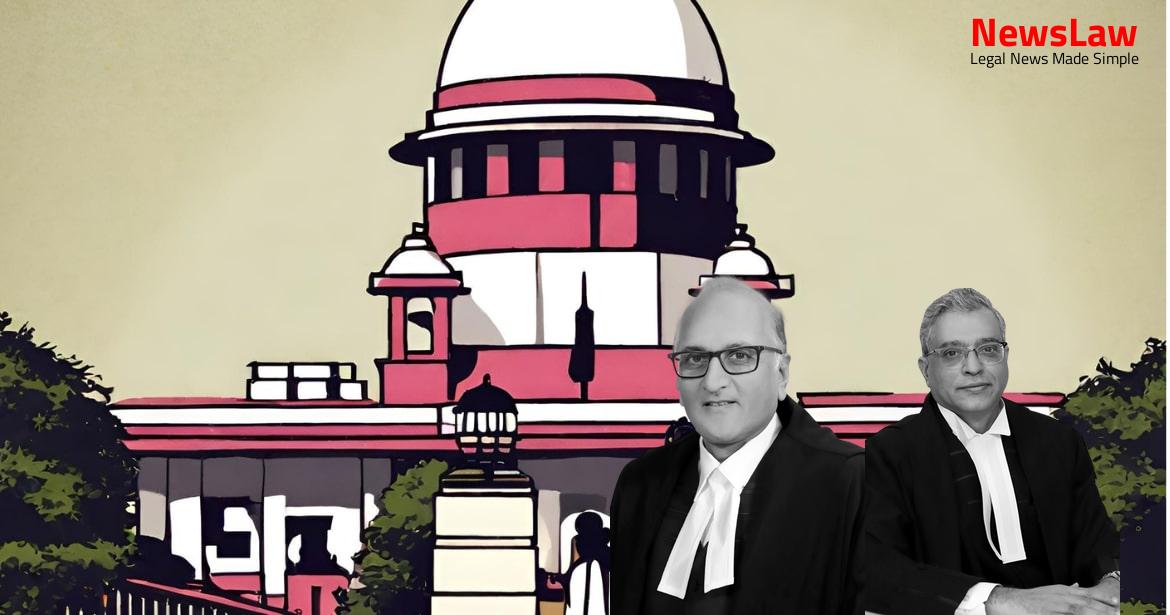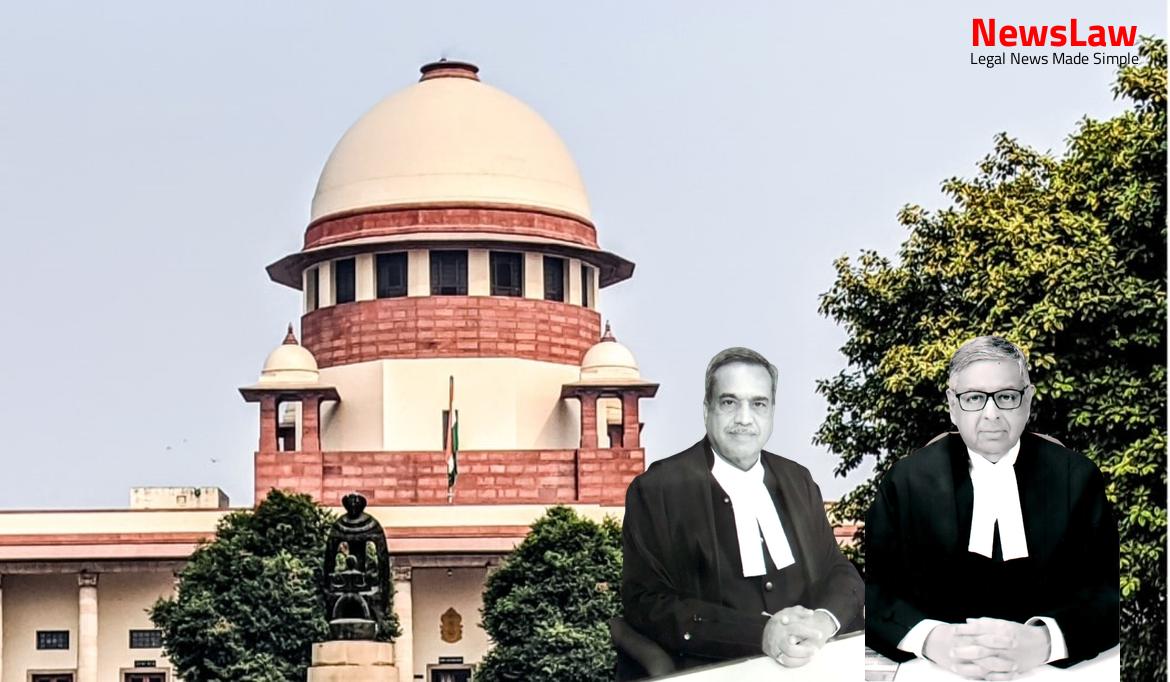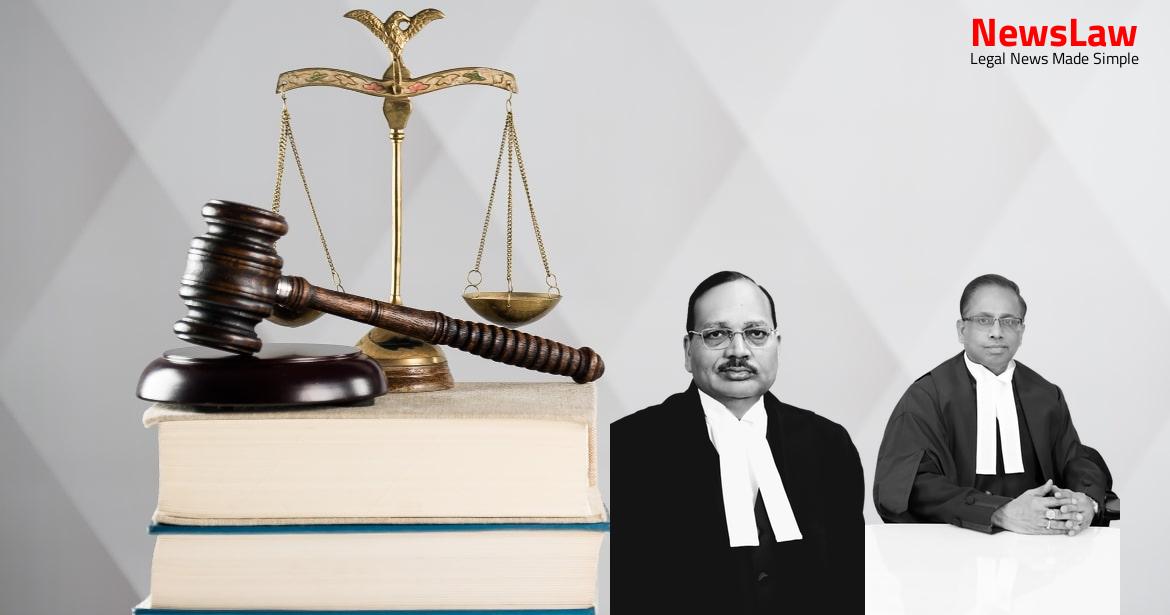Delve into the realm of judicial review and legal remedies in civil cases with a focus on the court’s legal analysis. This case summary highlights the significance of procedural adherence and the availability of statutory remedies like appeals. The complexities of challenging court judgments through revision petitions under Article 227 of the Constitution of India are examined, shedding light on the court’s role in ensuring justice is served within the framework of established laws.
Facts
- Original defendant Nos. 2 to 4 filed an application to set aside the ex-parte judgment and decree.
- There was a delay of 2345 days in filing the petition to set aside the ex-parte judgment and decree.
- Original defendant No. 1 also filed an application to set aside the ex-parte judgment and decree.
- Original defendant No. 1 filed an application to condone the delay of 1522 days in filing the petition to set aside the ex-parte judgment and decree.
- The Trial Court passed an ex-parte judgment and decree dated 31.10.2012.
- Original defendant No. 1 and original defendant Nos. 2 to 4 filed separate applications to set aside the ex-parte judgment and decree.
- The Trial Court dismissed both applications due to delay in filing.
- Original defendant Nos. 2 to 4 filed Civil Revision Petition No. 1054/2021 before the High Court to challenge the Trial Court’s decision.
- Original defendant No. 1 did not challenge the Trial Court’s decision but filed Civil Revision Petition No. 1301/2021 before the High Court under Article 227 of the Constitution of India.
- The High Court allowed the Civil Revision Petition filed by original defendant Nos. 2 to 4 (CRP No. 1045/2021).
- The High Court also set aside the judgment and decree passed by the Trial Court, stating it was without proper consideration.
- The High Court did not express any opinion on whether the Trial Court was justified in its decision to not condone the delay of 2345 days in filing the petition to set aside the ex-parte judgment and decree.
Also Read: Challenging Legal Presumptions in Negotiable Instrument Cases
Arguments
- The appellant’s argument is that the ex-parte judgment and decree should have been challenged through an appeal rather than a revision petition under Article 227 of the Constitution of India.
- The High Court made findings on the legality and validity of the judgment and decree as if it were handling an appeal, without addressing whether the Trial Court was justified in issuing the ex-parte judgment and decree.
- The respondent argues that the High Court rightfully set aside the ex-parte judgment and decree due to procedural errors, specifically concerning the requirement of proving readiness and willingness, as outlined in the Code of Civil Procedure.
- There is a disagreement on the High Court’s decision to set aside the ex-parte judgment and decree without considering the delays in filing the petition to do so, particularly the 1522 day delay by one of the defendants.
- The appellant insists that the High Court did not consider the delays properly and exceeded its powers under Article 227 of the Constitution of India in setting aside the judgment and decree.
- The appellant also contends that the Trial Court’s decision to not condone the delay should have been final since it was not challenged, and therefore, the revision petition challenging the judgment should not have been entertained.
- Challenge to judicial orders can be made through statutory appeal, revision, or Article 227, not by way of writ under Article 226 or 32.
- The defendants filed revision petitions invoking the jurisdiction of the High Court under Section 115 of CPC and Article 227 of the Constitution of India on different grounds.
- The High Court correctly set aside the ex-parte judgment and decree of specific performance as it was not in line with CPC procedures and failed to consider relevant aspects under the Specific Relief Act.
Also Read: Legal Analysis of Admission Irregularities in Educational Institutions
Analysis
- Courts should distinguish between cases with alternative remedies under CPC and cases under special enactments with quasi-judicial authorities.
- In this case, High Court did not consider whether Trial Court was justified in refusing to condone the delay of 2345 days.
- Original defendant No. 1 challenged the ex-parte judgment through a revision under Article 227.
- Defendants had the option to file application under Order IX Rule 13 of CPC or appeal before First Appellate Court.
- The huge delay of 1522 and 2345 days in filing applications was not condoned by Trial Court.
- High Court should not have entertained the revision petition under Article 227 due to the availability of appeal remedy under CPC.
- High Court should have considered whether Trial Court was justified in refusing to condone the delay.
- The High Court’s decision to set aside ex-parte judgment without addressing the delay issue was not appropriate.
- Statutory alternative remedy of appeal was available to defendants, hence High Court should not have entertained writ petition or revision under Article 227.
- High Court did not discuss the Trial Court’s order refusing to condone the delay.
- High Court should have considered the legality and validity of Trial Court’s decision on delay instead of setting aside the judgment.
- The High Court should not have entertained the revision under Article 227 when a specific remedy of appeal is available under CPC.
- High Court should direct the party to avail themselves of remedies before resorting to a constitutional remedy
- Orders of civil court stand on a different footing from orders of other authorities
- Availability of a remedy under the Civil Procedure Code will deter the High Court from exercising its power of superintendence under the Constitution
- The case of Virudhunagar Hindu Nadargal Dharma Paribalana Sabai and Ors. Vs. Tuticorin Educational Society and Ors. is referred to, emphasizing the need to take recourse to available remedies like appeal before approaching the High Court
- The High Court erred in entertaining the revision petition under Article 227 challenging the ex-parte judgment and decree by the Trial Court.
- The High Court exceeded its jurisdiction in quashing and setting aside the ex-parte judgment and decree under Article 227.
- The High Court should have first examined whether the Trial Court was justified in passing the ex-parte judgment and decree.
- The delay in filing the petition challenging the ex-parte judgment should have been considered by the High Court as well.
- The High Court’s judgment was based on irrelevant considerations and did not address the relevant aspects of the case.
- The impugned judgment and order by the High Court should be quashed and set aside.
Also Read: Legal Analysis: Driver Appointment Dispute
Decision
- The ex-parte judgment and decree passed by the learned Trial Court as well as the order(s) refusing to condone the delay of 2345 days in filing the revision petition(s) are restored.
- The present appeals are allowed, and the impugned judgment and order by the High Court in Civil Revision Petition (NPD) No 1054/2021 and Civil Revision Petition (PD) No 1301/2021 are quashed and set aside.
- No order is passed as to costs.
Case Title: MOHAMED ALI Vs. V. JAYA (2022 INSC 696)
Case Number: C.A. No.-004113-004113 / 2022



